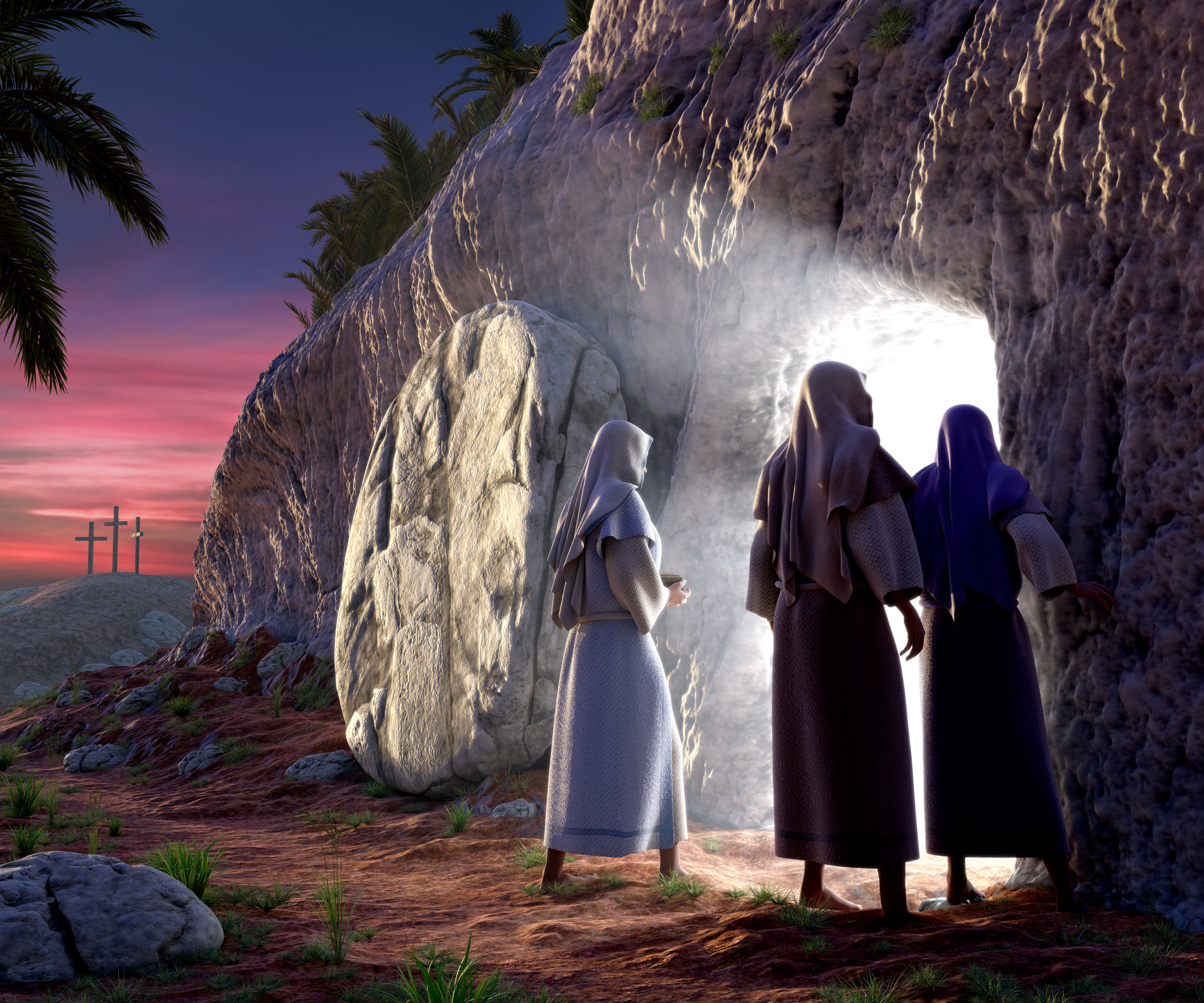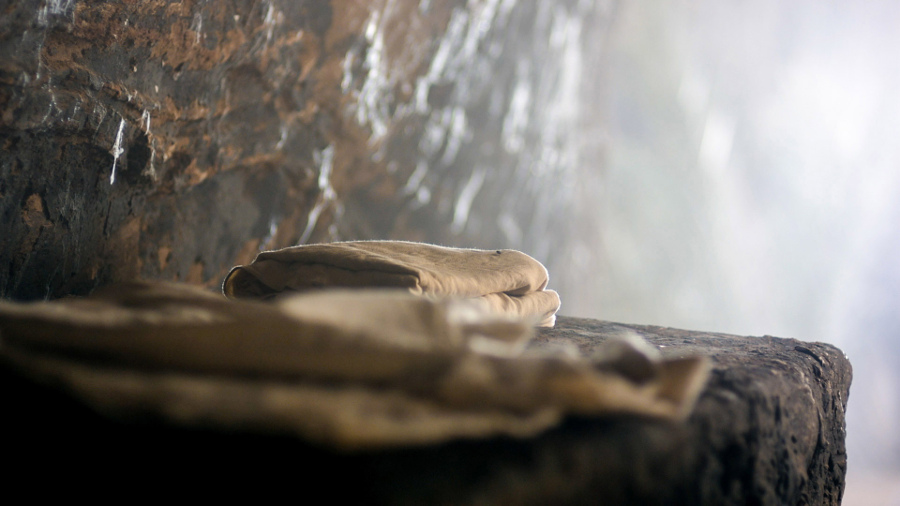
From the DayBreaks archive, 2015:
John 11:17-25 – When Jesus arrived at Bethany, he was told that Lazarus had already been in his grave for four days. Bethany was only a few miles down the road from Jerusalem, and many of the people had come to pay their respects and console Martha and Mary on their loss. When Martha got word that Jesus was coming, she went to meet him. But Mary stayed at home. Martha said to Jesus, “Lord, if you had been here, my brother would not have died. But even now I know that God will give you whatever you ask.” Jesus told her, “Your brother will rise again.” “Yes,” Martha said, “when everyone else rises, on resurrection day.” Jesus told her, “I am the resurrection and the life. Those who believe in me, even though they die like everyone else, will live again.”
This past week was not a really good one for several members of our church. Two families lost loved ones from their extended family. The cold, bony fingers of death were a little too close to home this past week. I pray that they’ll be gone for some period of time. Both deaths were rather sudden, and relatively unexpected. But, when the Lord decides that our time is up, we must answer and we must go – no matter whether we are male or female, young or old, rich or poor, happy or sad – believer or unbeliever alike.
I think that John 11 is my favorite chapter in the Bible. The theological truths are profound, the human drama unrivaled, the full gamut of human experience, from life, to death, to resurrection, and the surprise of new life are on display. Jesus’ compassion and his fury at death are equally visceral. Jesus had already raised other people from the dead by the time the story of Lazarus takes place. But Martha, bless her heart, still somewhat rebukes the Lord for dilly-dallying around instead of coming at first word of Lazarus’ illness, and then she confesses, when asked, that she believes he will rise again in the resurrection. Was she being coy – perhaps hoping that Jesus would raise him? I don’t think so. I think she had no such expectation. When confronted with death we are forced to become realists. Death is as real as real as it gets. That is, unless Jesus is there.
Jesus tells her an amazing truth: I AM the resurrection and the life…. He doesn’t say, “I will be responsible for bringing the resurrection someday.” No, He’s far more than the power behind the resurrection. He IS the resurrection. The Resurrection was standing in their midst, eating with them, laughing with them, weeping with them, teaching them, living for them, dying for them, and then living again.
F. B. Maurice said that this story made him very sad. How sad it is, he observed, that after 2000 years, the church has gotten most Christians only to the point to which the Pharisees got Martha: resurrection in the future, resurrection a week from some Tuesday. Only a handful have ever gotten past that point and made the leap of faith that Jesus got Martha to make: the leap to resurrection now – to resurrection as the fundamental mystery of creation finally manifest in his own flesh.
Will we live in the resurrected body in the future? Yes. All, Jesus says, who believe in him, will live again. But will we live in the power of the resurrection NOW? Will we continue to be afraid, fearful and timid creatures with no power, or will we live in Jesus now? (It’s the same as living in the Resurrection, since He is the resurrection!) Jesus had no fear – he feared nothing and no one because He knew what it meant to be the Resurrection. Nothing could hold him, nothing could stop him, nothing can ever diminish him. May we learn the secret of living in the resurrection each day for the rest of our lives!
PRAYER: Fill us, Lord, with Your glorious resurrection power today and every day throughout eternity! In Jesus’ name, Amen.
Copyright 2024 by Galen C. Dalrymple.








_-_WGA10755.jpg)
